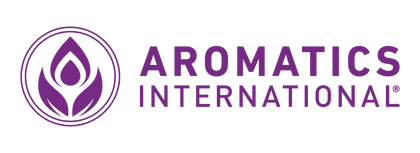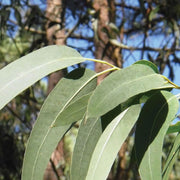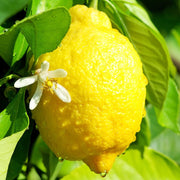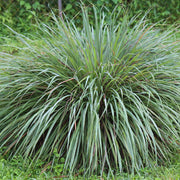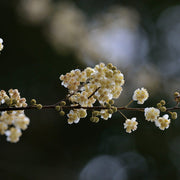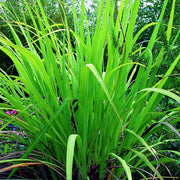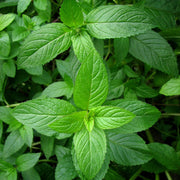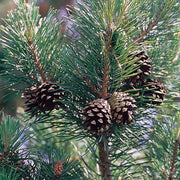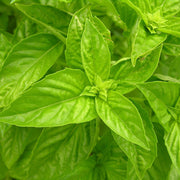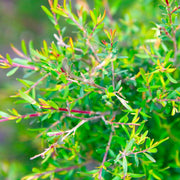The 10 best essential oils for natural cleaning

The 10 best essential oils for natural cleaning
Studies about essential oils and their components are too numerous to count!
So we’ve narrowed this guide down to 10 essential oils, and a few research citations for each one. These 10 oils are proven, potent natural cleaners against germs, microbes, and even fungi. (You’ll use them to make the natural cleaning recipes in Chapter 7 of this guide!)
Below, you’ll see each essential oil’s main components, some of the primary ways you can use the oil for natural cleaning, and research citations to back up those uses.
CITATIONS
1. Abad, M.J., Ansuategui, M. and Bermejo, P. (2007) Active antifungal substances from natural sources. ARKIVOC (vii) 116-145.
2. Astani A, Reichling J, Schnitzler P. (2010) Comparative study on the antiviral activity of selected monoterpenes derived from essential oils. Phytotherapy Research 24, 5, 673-679.
3. Boukhatem, M.N., Ferhat, M.A., Kameli, A., Saidi, F. and Kebir, H.T. (2014) Lemon grass (Cymbopogon citratus) essential oil as a potent anti-inflammatory and antifungal drug. Libyan Journal of Medicine 9, 25431.
4. Cermelli, C., Fabio, A., Fabio, G. and Quaglio, P. (2008) Effect of eucalyptus essential oil on respiratory bacteria and viruses. Current Microbiology 56, 1, 89-92.
5. Chiang LC, Ng LT, Cheng PW et al (2005) Antiviral activities of extracts and selected pure constituents of Ocimum basilicum. Clinical & Experimental Pharmacology & Physiology 32:811-816.
6. D’Auria FD, Tecca M, Strippoli V et al. (2005) Antifungal activity of Lavandula angustifolia essential oil against Candida albicans yeast and mycelial form. Medical Microbiology 43: 391-396
7. Da Silva AC, Lopes PM, de Azevedo MM, Costa DC, Alviano CS, Alviano DS. (2012) Biological activities of a-pinene and ß-pinene enantiomers. Molecules 2012 17, 6305–16.
8. Edris, A.E. (2007) Pharmaceutical and therapeutic potentials of essential oils and their individual volatile constituents: a review. Phytotherapy Research 21, 308-323.
9. Faiyazuddin, Md., Suri, S., Mustafa, G., Iqbal, Z., Talegaonkar, S., Khar, R.K., Ahmad, F.J. (2009) Phytotherapeutic potential of tea tree essential oil in vitro and emerging vistas in the skincare industry: a comprehensive review. International Journal of Essential Oil Therapeutics 3, 2-3, 84-90.
10. Garozzo, A., Timpanaro, R., Bisignano, B., Furneri, P.M., Bisignano, G. and Castro, A. (2009) In vitro antiviral activity of Melaleuca alternifolia essential oil. Letters in Applied Microbiology 49, 6, 806-808.
11. Kordali, S., Cakir, A., Mavi, A., Kilic, H. and Yildirim, A. (2005) Screening of chemical composition and antifungal and antioxidant activities of the essential oils from three Turkish Artemisia species. Journal of Agricultural and Food Chemistry 53, 5, 1408-1416.
12. Lang, G. and Buchbauer, G. (2012) A review on recent research results (2008-2010) on essential oils as antimicrobials and antifungals. A review. Flavour and Fragrance Journal 27, 13-39.
13. Li WR, Shi QS, Liang Q, Xie XB, Huang XM, Chen YB. (2014) Antibacterial activity and kinetics of Litsea cubeba oil on Escherichia coli. PLoS One. 2014 Nov 5; 9,1. e110983. doi: 10.1371/journal.pone.0110983. eCollection 2014.
14. Loizzo MR, Saab A, Tundis R et al (2008) Phytochemical analysis and in vitro evaluation of the biological activity against herpes simplex virus type 1 (HSV-1) of Cedrus libani A. Rich. Phytomedicine 15:79-83
15. Lorenzi, V., Muselli, A., Bernardini, A.F., Berti, L., Pagès, J.-M., Amaral, L. and Bola, J.-M. (2009) Geraniol restores antibiotic activities against multidrug-resistant isolates from Gram-negative species. Antimicrobial Agents and Chemotherapy 53, 5, 2209-2211.
16. Minami, M., Kita, M., Nakaya, T., Yamamoto, T., Kuriyama, H. and Imanishi, J. (2003) The inhibitory effects of essential oils on herpes simplex type-1 replication in vitro. Microbiology and Immunology 47, 681-684.
17. Pattnaik, S., Subramanyam, V.R., Bapaji, M. and Kole, C.R. (1997) Antibacterial and antifungal activity of aromatic constituents of essential oils. Microbios 89, 39-46.
18. Rota, M.C., Herrera, A., Martinez, R.M., Sotomayor, J.A. and Jordán, M.J. (2008) Antimicrobial activity and chemical composition of Thymus vulgaris, Thymus zygis and Thymus hyemalis essential oils. Food Control 19, 681-687.
19. Saad, N.Y., Muller, C.D. and Lobstein, A. (2013) Major bioactivities and mechanism of action of essential oils and their components. Flavour and Fragrance Journal 28, 269-279.
20. Silva, B., Guterres, S.S., Weisheimer, V. and Schapoval, E.E. (2008) Antifungal activity of the lemongrass oil and citral against Candida spp. Brazilian Journal of Infectious Diseases 12, 63-66.
21. Tao N, OuYang O, Jia L. (2014) Citral inhibits mycelial growth of Penicillium italicum by a membrane damage mechanism. Food Control 41, 116-121.
The 10 best essential oils for natural cleaning
Join Our Newsletter
Save 15% on your first order
Aromatherapy sent directly to your inbox. Receive tips, essential oil recipes, promotion alerts, live events and more. We look forward to connecting with you! *Exclusions apply.
